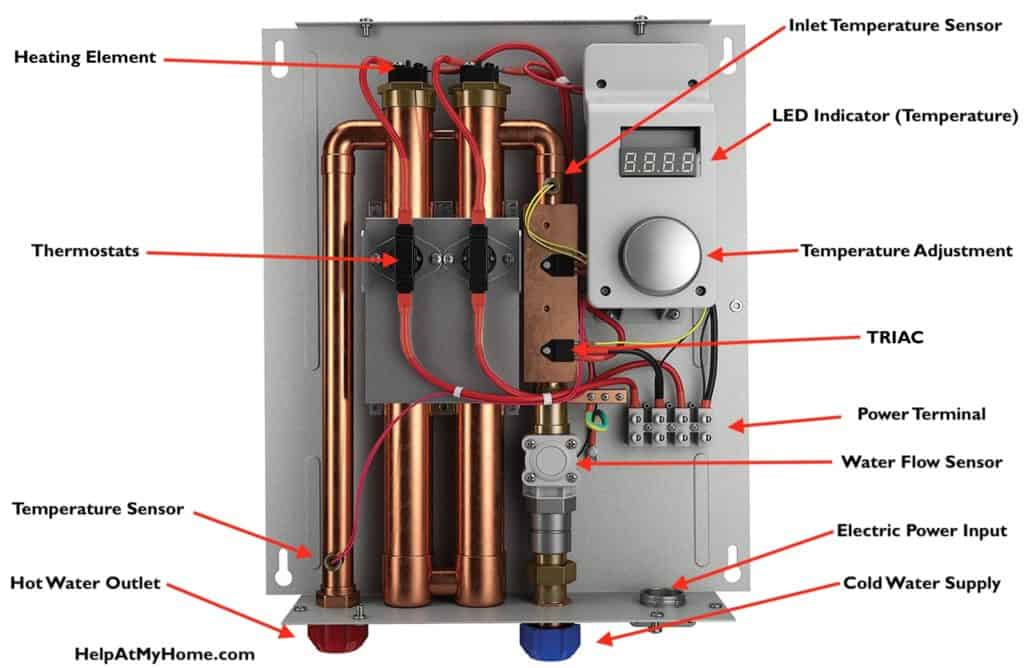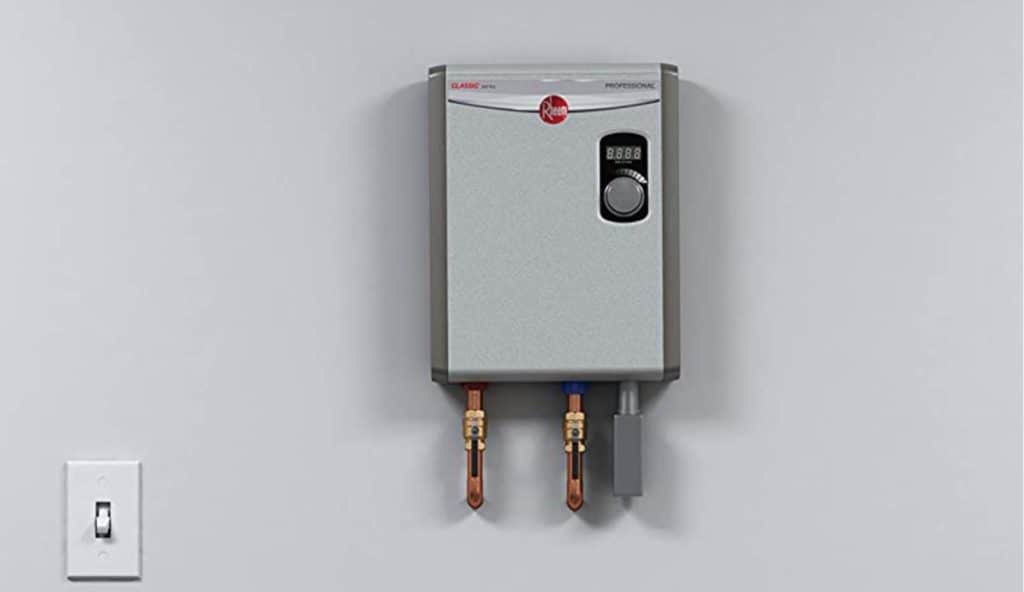If you are designing or upgrading a home, you might be considering a tankless water heater. This is a product that most of us has hard of, but might not have experience with. So what are the pros and cons of tankless home water heaters?
What Is A Tankless Water Heater?
A traditional water heater has, you guessed it, a tank for holding water that has been heated. The water is heated, cools naturally, and then reheats in a continual cycle, which isn’t efficient if you aren’t home. Not a lot of power is needed because the water is going from hot to really hot, but the cycle runs all the time so power is wasted.

A tankless water heater ditches the full-size (say 50 gallons) for 2-9 gallon/minute flow rate with almost no water in holding. When water is needed, a much more powerful heater is activated and the water is heated almost instantly. More power is used at the time, but it’s not used as much. The end result is an overall smaller and more efficient system.
Advantages of Tankless Water Heaters
Here are the reasons why you should consider a tankless system…
- Overall power efficiency is improved
- Improved lifespan (up to a 20 year working life)
- Unlimited hot water
- Smaller size overall
Tankless water heaters are best for home with two or less people in them and that use less water each day. While they can work for any household, especially if you are adding multiple tankless heaters, smaller households will benefit the most and recognize the most efficiency gains and the fastest times towards earning back the higher upfront cost of the heater.
Disadvantages of Tankless Water Heaters
And here are reasons not to go tankless…
- Higher upfront cost (averaging about $1000)
- Increased installation complexity
- Annual maintenance is required
- Less water temperature consistency
- Output is limited by heating power (usually 2-5 gallons/minute, with high-end models going up to 9 gpm)
Tankless water heaters aren’t magic, they can only output so much water and they will only trigger when sufficient water is flowing. This means you may want a small stream of hot water, say for shaving, but it’s not enough to turn on the heater, which uses a flow-rate sensor to know when to activate.
A key compliant with tankless heaters is that they can’t pre-heat water (they heat on demand) so if someone wants to take a shower while the dishwasher is running or two people want to shower at once, there may not be enough hot water to go around. This is why larger homes will opt for multiple tankless heaters as opposed to a whole-house tankless heater.
While tankless water heaters do require annual maintenance, this is really more of an issue in areas with hard water. So for safety’s sake and in order to maintain your warranty you’ll want to have the heater serviced, you shouldn’t expect problems or even much work if you are already taking measures against hard water deposits.
The heater in a tankless model might be up to 200,000 BTUs vs. around 75,000 BTUs for a standard water heater. This might means changes to your gas line or a higher power bill if you opt for an electric model. The tankless heater will often require a higher flow gas line as well as increased venting off of your standard heater.
FAQs
How long to tankless water heaters last?
Tankless water heaters are typically designed to last for 20 years. This is versus the expected 10 year lifespan of a standard water heater with a tank. The warranty on a brand name heater, like a Rheem might be a 12-year limited warranty on the unit, 5 to 6 years on parts, and 1 year on installation labor.

